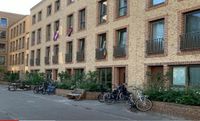In a move that has sparked outrage among housing advocates, the Dutch coalition government announced on April 16, 2025, that social rents will be frozen for the next two years. This decision was made during the discussions surrounding the Spring Memorandum, a key document outlining the government’s financial plans.
Liesbeth Spies, the chairman of Aedes, the umbrella organization representing housing corporations, expressed her deep dissatisfaction with the decision. "I have rarely been so angry, sad, and disappointed," she stated, highlighting the impact this freeze will have on tenants across the country. While the freeze may initially appear to benefit renters by preventing any immediate rent increases, Aedes argues that the long-term consequences could be disastrous.
The coalition’s decision comes at a time when housing affordability is a pressing issue in the Netherlands. Many tenants are already struggling with rising living costs, and the freeze on social rents is seen as a short-sighted solution that fails to address the underlying problems in the housing market.
According to Aedes, the freeze on social rents will hinder the ability of housing corporations to invest in new construction and maintenance of existing properties. With less revenue from rents, these organizations may be forced to cut back on essential services and improvements, ultimately leading to a decline in the quality of housing available to tenants.
The Spring Memorandum also included a relaxation of the 'middenhuurwet' or middle rent law, which governs rental prices in the mid-range market. This change is expected to further complicate the housing landscape, making it even harder for low- and middle-income families to find affordable housing.
Housing experts warn that freezing social rents could exacerbate the existing housing crisis in the Netherlands. With a growing population and an increasing demand for affordable housing, the government’s decision may lead to a situation where fewer homes are available for those who need them most.
Critics of the policy argue that the government should be focusing on increasing the supply of affordable housing rather than freezing rents, which they believe will only serve to deepen the crisis. They call for more proactive measures, such as incentivizing the construction of new homes and ensuring that existing properties are adequately maintained.
The coalition government, however, defended its decision, claiming that the freeze on social rents is a necessary step to stabilize the housing market in the short term. They argue that it will provide immediate relief to tenants facing economic uncertainty.
As the implications of this decision unfold, many are left wondering how it will affect the future of housing in the Netherlands. With rising costs and a limited supply of affordable homes, the government’s strategy will be closely scrutinized by both housing advocates and the general public.
Ultimately, the freeze on social rents could serve as a litmus test for the coalition government’s commitment to addressing the housing crisis. With mounting pressure from various stakeholders, it remains to be seen whether this policy will lead to meaningful change or if it will simply prolong the challenges facing renters across the country.







